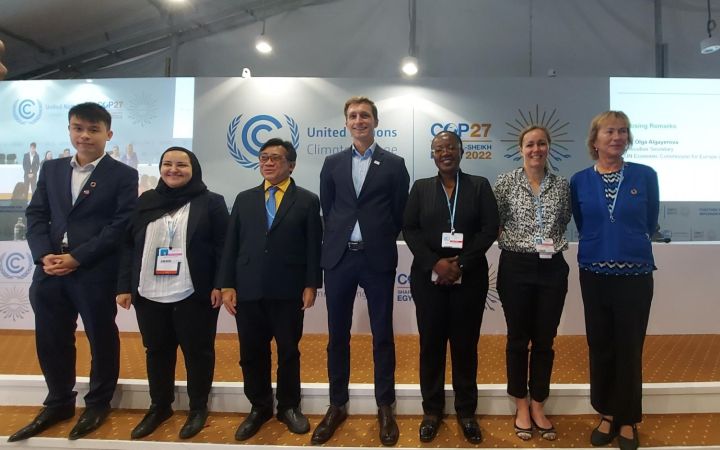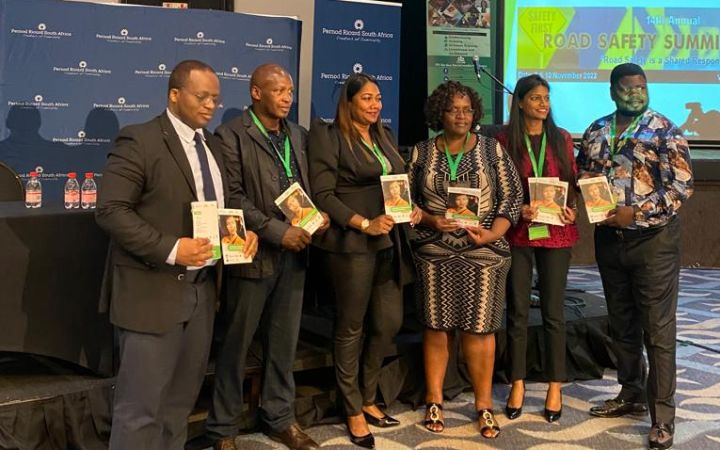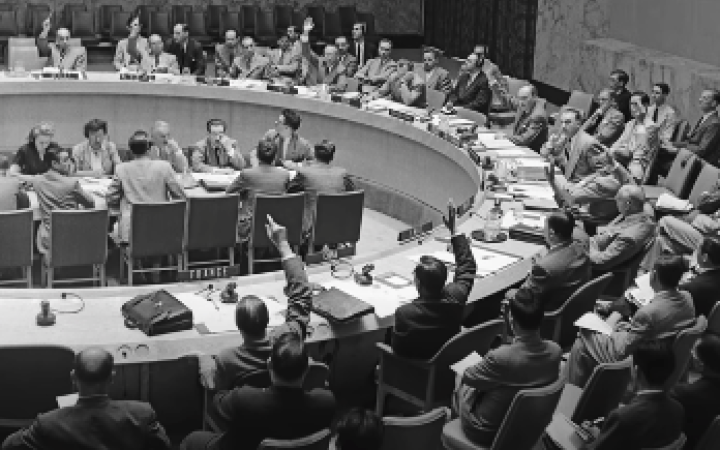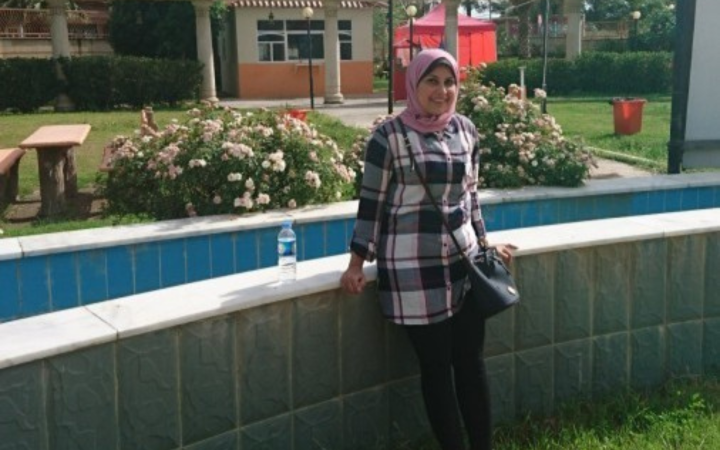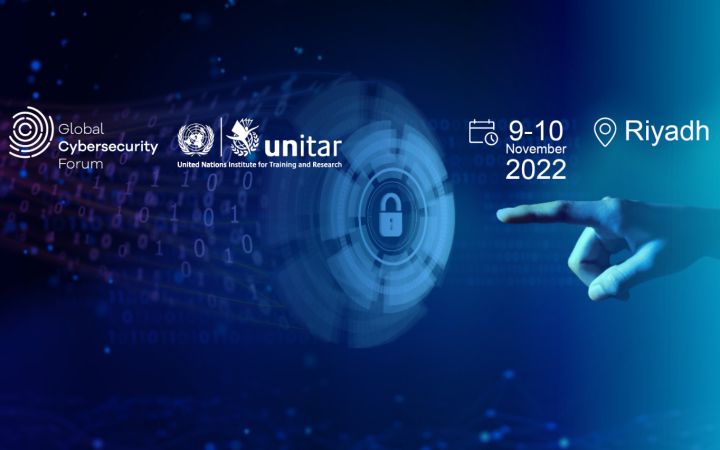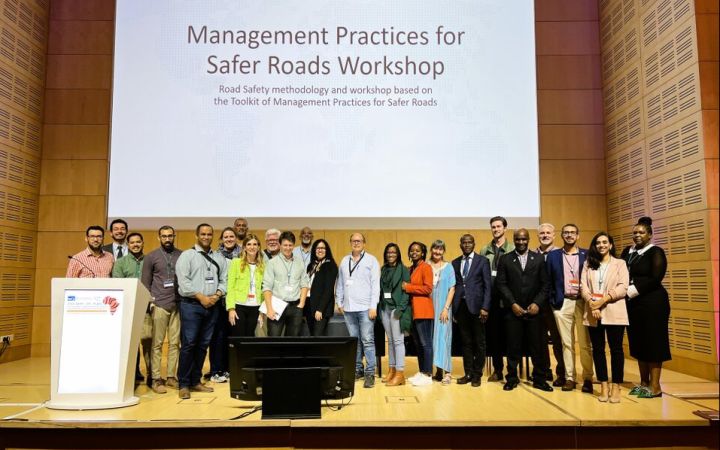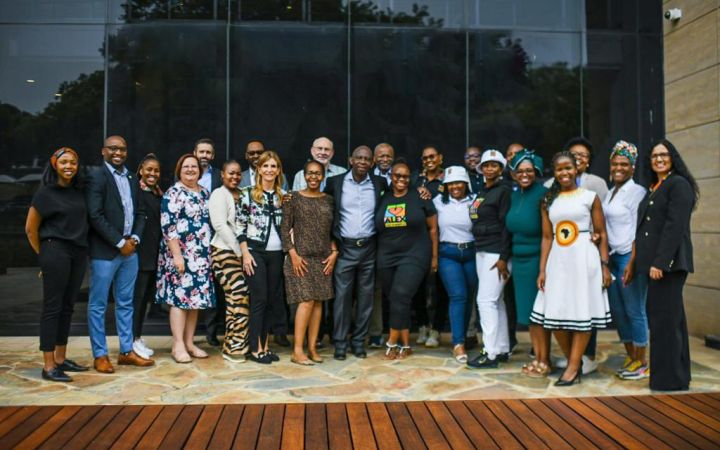Displaying 791 - 800 of 1758
"It seems simple, just entering some data and calculating it, but we had to look into other aspects that play an important role in mercury emission. For instance, for some of these categories, we had to go through data on mercury importation from the last 3 years. We also had to work closely with other ministries to get an accurate assessment of these importations."
10 November 2022, Sharm el-Sheikh, Egypt - The PAGE and UN partners side event at the COP27, on November 9, discussed how circular economy principles and practices can serve as a catalyst to promoting human well-being, preserving nature, cutting pollution, and making economies more competitive. By bringing together representatives of governments, UN agencies, private sector, think tanks and youth, the event explored the enabling factors for accelerating the global shift towards circular economy, within the context of just, inclusive, and sustainable development.
10 November 2022, Geneva, Switzerland – The United Nations Institute for Training and Research (UNITAR) and the United Nations Conference on Trade and Development (UNCTAD) will jointly conduct a roundtable discussion on the topic “The Global Rules that Advance Local Solutions” on 24 November 2022, at Palais des Nations in Geneva.
9 November 2022, Durban, South Africa – In the framework of 14th Annual Road Safety Summit in Durban, South Africa taking place on 9 – 10 November, UNITAR and CIFAL Durban presented its Autosobriety Training Programme to government officials, businesses, and road safety stakeholders from South Africa.
4 November 2022, New York, United States - The United Nations Institute for Training and Research (UNITAR) New York Office continued its online training series for the Switzerland delegation in preparation for their membership at the United Nations Security Council which was attended by more than 35 delegates from capital and the mission in New York.
“Through the discussion platform, I have got to connect with policymakers, researchers and professionals working on the agriculture sector in different countries within the MENA region.”
3 November 2022, Accra, Ghana - UNOSAT received the 2022 GEO SDG - GEO Participating Organization Award for its Emergency Mapping service recognizing the productivity, innovation, novelty and exemplary efforts in the use of Earth observations to support sustainable development.
2 November 2022, Geneva, Switzerland - UNITAR, As the world becomes increasingly digitalized, with new disruptive technologies, practices, and actors appearing throughout the globe, it has become essential for institutions, governments, and companies to protect their cyber spaces from hackers and other forms of malicious elements.
31 October 2022, Cape Town, South Africa – In the framework of the 7th Regional Conference for Africa under the theme Connecting Africa through Smart, Safe and Resilient Roads: Stimulating Growth and Trade on the Continent, UNITAR and CIFAL Durban in collaboration with the South African Roads Federation (SARF), the International Road Federation (IRF), the World Road Association (PIARC), offered a training session on innovative practices to optimize road networks, and a training workshop on the Management Practices for Safer Roads Toolkit, gathering more than 500 delegates from 33 countries, including provincial and local government officials, experts from road agencies, and road authorities and decision makers. The activities provided useful tools and learnings to regional challenges of road safety and brought ideas for improving road networks in Africa.
28 October 2022, Johannesburg, South Africa – Screening and Brief Interventions (SBI) for hazardous and harmful drinking are considered as a preventative approach which measures an individual’s drinking pattern during outpatient or wellness visits and provides interventions to those at risk of harmful use of alcohol. In addition, web-based information, self-testing and self-help guidance, using simple advice and education materials are some of the channels of information that can be further utilized to advance this objective.



